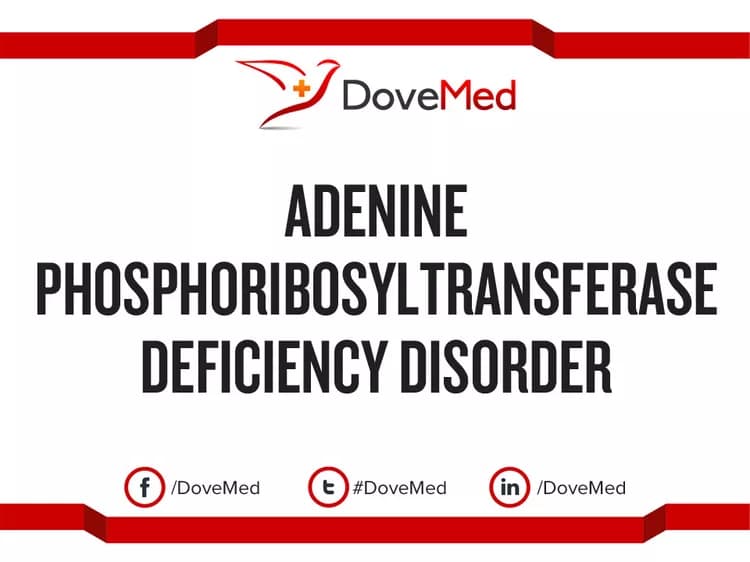
Adenine Phosphoribosyltransferase Deficiency (APRTD) Disorder
The topic Adenine Phosphoribosyltransferase Deficiency (APRTD) Disorder you are seeking is a synonym, or alternative name, or is closely related to the medical condition Adenine Phosphoribosyltransferase Deficiency Disorder.
Quick Summary:
- Adenine Phosphoribosyltransferase (APRT) Deficiency Disorder is a genetic disorder that is more commonly found in certain Icelandic, Japanese, and some European populations
- Mutations in the APRT gene cause the condition, wherein the enzyme adenine phosphoribosyltransferase is impaired. This leads to the formation of 2,8- dihydroxyadenine (2,8-DHA), which is toxic to the cells and crystallizes in urine, as well as in the urinary tract, leading to the characteristic symptoms of the disorder
- The onset of symptoms could occur during infancy, childhood, or adulthood. It is reported that 15-20% of the affected individuals may remain asymptomatic
- The characteristic symptoms of APRT Deficiency Disorder include reddish brown crystalline substance in the diapers of infants, repeated kidney stone formation in children and adults, nausea, fever, vomiting, and pain during urination
- Chronic kidney disease and renal failure are some of the potential complications of this deficiency disorder, which can be diagnosed via physical examination, evaluation of family history, assessment of symptoms, examination of the urine for crystals, blood tests, and genetic screenings
- Following a low-purine diet (such as eggs, low-fat foods, and some vegetables), increased fluid intake, and taking medication for reducing uric acid are some of the treatment options available to the individuals affected by Adenine Phosphoribosyltransferase Deficiency Disorder
- Since the disorder is genetic in nature, currently there are no methods to prevent it from occurring. Although, expecting parents may benefit from genetic testing and counselling, if there is a family history of the disorder. Avoiding a high-purine diet (that includes certain meat types, seafood, and alcohol) may be recommended to reduce the severity of symptoms in those affected
- If diagnosed early and treated promptly, the prognosis of Adenine Phosphoribosyltransferase Deficiency is good. However, misdiagnosis and/or a lack of treatment can lead to both renal malfunction and renal failure
Please find comprehensive information on Adenine Phosphoribosyltransferase Deficiency Disorder regarding definition, distribution, risk factors, causes, signs & symptoms, diagnosis, complications, treatment, prevention, prognosis, and additional useful information HERE.
Related Articles
Test Your Knowledge
Asked by users
Related Centers
Related Specialties
Related Physicians
Related Procedures
Related Resources
Join DoveHubs
and connect with fellow professionals

0 Comments
Please log in to post a comment.